This article was medically reviewed by Luba Lee, FNP-BC, MS. Luba Lee, FNP-BC is a Board-Certified Family Nurse Practitioner (FNP) and educator in Tennessee with over a decade of clinical experience. Luba has certifications in Pediatric Advanced Life Support (PALS), Emergency Medicine, Advanced Cardiac Life Support (ACLS), Team Building, and Critical Care Nursing. She received her Master of Science in Nursing (MSN) from the University of Tennessee in 2006.
There are 16 references cited in this article, which can be found at the bottom of the page.
This article has been viewed 18,240 times.
If you have a family member who has been diagnosed with Huntington's disease, you may be concerned about your own risk of developing it. As a genetic disorder, Huntington's disease is passed down through families. Keep an eye out for symptoms like changes in movement, behavior, or concentration. Visit a neurologist for a diagnosis. They will observe you to see if you have the symptoms. You can also undergo genetic testing to confirm if you carry the gene. If you have been diagnosed, talk to your doctor about what you can do to manage symptoms so that you can continue to live a fulfilling life.
Steps
Identifying Symptoms
-
1Check your family history for Huntington’s. Huntington’s disease is a genetic disorder. This means that if you have a parent or grandparent with the disease, you may carry the gene for it. Go over your family’s medical history, looking for people who had Huntington's or who had symptoms of it. Share this medical history with your doctor.[1]
- If you have a parent with Huntington’s, you have a 50% chance of having the disease yourself.
- Remember that Huntington's disease has similar symptoms to other disorders, so you may want to check for anyone who has similar symptoms in your family. If you know you have a family history of it, however, you should see a doctor as soon as these symptoms present.
- Because the gene for Huntington's is dominant, you usually can only get the gene if a direct ancestor (such as parents or grandparents) had it too. While extremely rare, a very small percentage of people may develop the gene without having a family history.
-
2Monitor any involuntary movements or twitching. Huntington’s can cause you to jerk, twitch, fidget, or shake without meaning to. As the disease progresses, these movements may get worse. If you think you have these involuntary movements, write down when they occur and what part of your body is affected.[2]
- Common involuntary movements include eye twitches, strange facial expressions, and flailing arms or legs.
- Involuntary muscle twitching can be a symptom of many diseases, including Ataxia, Myoclonus, and Parkinson's disease. Always check for other symptoms before making a diagnosis.
Advertisement -
3Watch out for increased falling, stumbling, or clumsiness. Huntington’s can cause slow or awkward movements, which may make you drop objects or fall more often than usual. As the disease progresses, this may get worse, making it difficult to walk.[3]
-
4Listen for slurred or slowed speech. You may take more pauses while talking or you may stumble over common words. Ask family and friends if they notice any difference in your speech. If you’re concerned about your speech, consider recording yourself speaking and let your doctor listen.[4]
- As Huntington’s progresses, you may lose the ability to speak.
- Remember that slurred speech can be a sign of many different disorders, including a brain tumor, Parkinson's disease, or Lyme disease. While you should still see a neurologist, check for other symptoms as well.
-
5Observe any changes in memory, judgment, or concentration. Huntington’s can affect how quickly you think or make judgments. You may notice that it is harder to remember things or you may feel disoriented and confused at times.[5]
- This can be a difficult thing to judge for yourself. If a friend or family member comes to you with concerns about your cognitive ability, go to a doctor.
- In people under the age of 20, you may notice a sudden drop or change in academic performance.
-
6Check for any changes in behavior or mental health. Anxiety, irritability, apathy, agitation, and depression may all be signs of Huntington’s. Keep an eye out for changes in your behavior. Writing in a journal can help you track your mood and emotional state.[6]
- For example, you might state that you are feeling very angry or irritable on a certain day. This can help you find patterns if they exist. Even if you're not diagnosed with Huntington's, this journal can help a therapist diagnose or treat you.
- Huntington’s can cause suicidal feelings. If you’re feeling suicidal, reach out for help. Call a suicide hotline to speak to someone. In the U.S., call/text 988. In the UK, call 116 123, and in Australia, call 13 11 14.
- If you start experiencing hallucinations, paranoia, or psychosis, get to a doctor as soon as possible.
-
7Get help for seizures in people under the age of 20. Juvenile Huntington’s shares the same symptoms as adult-onset Huntington’s, but many young people may also have seizures. If you or someone else develops seizures, get immediate medical attention.[7]
- Juvenile Huntington's is a faster and more aggressive form of the disease.
Reaching a Medical Diagnosis
-
1Ask for a referral to a neurologist. While your primary care doctor may recognize the symptoms of Huntington’s, a neurologist is usually the one who diagnoses and treats the disease. Ask your doctor for a referral to a neurologist.[8]
- While you can go to a neurologist you find yourself, you may need the referral for insurance purposes.
-
2Get a physical examination to test your motor skills. The neurologist may visually examine you for involuntary movement and twitches. They may observe your gait as you walk or test your reflexes.[9]
- Tell your doctor if you normally experience symptoms of Huntington’s disease at home. This is a good time to show your doctor any notes or recordings you have kept of your symptoms.
- If you're diagnosed with Huntington's, your doctor may use a scoring system called the Total Functioning Capacity Rating to determine what stage you're at.[10]
-
3Undergo a CT scan or MRI of your brain. Your doctor may send you to a radiology center or hospital for this test. Follow the technician’s instructions and lie still during the scan. This scan can show your doctor if there have been changes in your brain’s structure or if another condition is causing your symptoms.[11]
- Brain scans may not show any changes in the early stages of the disease. If you’ve just started showing symptoms, your doctor may wait before doing a scan.
-
4Test your blood to look for the gene that causes Huntington's disease. A genetic counselor will take a blood sample and send it to a lab to see if you carry the defective gene. If you carry the gene, you either have Huntington's disease or you will eventually develop it.[12]
- If you're not displaying symptoms of Huntington's, you can still get the genetic test to see if you carry the gene. Everyone who carries the gene will develop Huntington's at some point. Not everyone wants to know if they carry the gene. If you’re on the fence, talk to a genetic counselor about the benefits and drawbacks of knowing this information.
- A genetic test may be sometimes used to confirm your diagnosis of Huntington’s. Even if you’re already displaying symptoms, your doctor may recommend it.
-
5Visit a psychiatrist for a mental evaluation. Since Huntington’s can affect your mental health, your doctor or neurologist may send you to a psychiatrist for further testing. Talk to the psychiatrist about any symptoms of anxiety, depression, or anger.[13]
- Depression and bipolar disorder can be common with Huntington's. If you are diagnosed with 1 of these, your psychiatrist will treat these conditions separately from your Huntington's disease, using medication and psychotherapy.
Taking the Next Steps
-
1Educate yourself about Huntington's disease. Huntington's is progressive, which means that it gradually worsens over time. There are 5 stages to Huntington's disease, which can help you determine if you can live independently or not.[14]
- In the first 2 stages, you may be fully functional at work and home, although you may have increased stumbling, trembling, or memory problems.
- In the intermediate stage, you may require help with certain tasks and daily activities, such as cooking or handling finances. Some people may still be able to live on their own.
- In the last 2 stages, you may lose the ability to walk, eat, or live on your own. You may need around-the-clock care. In the very last stage, you may be moved to a hospice.
- Everyone experiences symptoms differently. The disease may progress differently for you than for other people.
-
2Talk to your neurologist about a personalized treatment plan. There is currently no cure for Huntington’s disease. Treatment is designed to help minimize your symptoms and improve your quality of life. Your neurologist, however, may prescribe a combination of medications, such as dopamine blockers, antidepressants, antipsychotics, or mood stabilizers.[15]
- Your medication will depend on your specific symptoms or the stage of the disease. Medications that work at an early stage may lose their effectiveness in later stages.
- If you take other medications, get them approved by your doctor, as you may become more sensitive to medications over time.
-
3Get a speech therapist if it becomes difficult to speak. As the disease progresses, it may become harder and harder to speak and eat. A speech therapist can help you continue to talk clearly or teach you to communicate in other ways. They may also provide support with eating.[16]
- Your doctor or neurologist can refer you to a speech therapist.
-
4Visit an occupational therapist for help walking and moving. An occupational therapist can provide guidance and assistance as it becomes more difficult to walk or control movements. Your doctor can refer you to a occupational therapist.[17]
- The occupational therapist can help you maintain control over basic tasks, such as feeding yourself or going to the restroom, as the disease progresses.
- The therapist may also suggest using tools to help you get around, like handrails or special eating utensils.
-
5Receive mental health counseling throughout the process. Because there is no cure for Huntington’s, it can be a difficult disease to live with. Counseling can help you cope with the disease as it progresses. Ask for a referral to a psychologist who can provide psychotherapy.[18]
- Support groups are also a great option. In the U.S., you can find a Huntington’s disease support group through the Huntington’s Disease Society of America: http://hdsa.org/about-hdsa/locate-resources.
-
6Make plans for end of life care. People with Huntington’s disease tend to live for about 10-15 years after diagnosis. Near the end, you may lose independence and require constant care. While it can be difficult to think about, talk to your doctor and loved ones about your wishes for end of life care.[19]
- Consider making a living will that spells out your wishes once you are no longer capable of making your own decisions.
- It may be a good idea to get other affairs in order at the same time. Talk to a lawyer about writing a will for your estate or making your wishes known regarding a burial.
References
- ↑ https://www.nhs.uk/conditions/huntingtons-disease/symptoms/
- ↑ https://medlineplus.gov/genetics/condition/huntington-disease/
- ↑ https://www.nhs.uk/conditions/huntingtons-disease/symptoms/
- ↑ https://medlineplus.gov/ency/article/000770.htm
- ↑ https://medlineplus.gov/ency/article/000770.htm
- ↑ https://www.urmc.rochester.edu/encyclopedia/content.aspx?ContentID=4552&ContentTypeID=1
- ↑ https://my.clevelandclinic.org/health/diseases/14369-huntingtons-disease
- ↑ https://my.clevelandclinic.org/health/diseases/14369-huntingtons-disease
- ↑ https://emedicine.medscape.com/article/1150165-clinical#b3
- ↑ http://hdsa.org/wp-content/uploads/2015/03/PhysiciansGuide_3rd-Edition.pdf
- ↑ https://my.clevelandclinic.org/health/diseases/14369-huntingtons-disease#diagnosis-and-tests
- ↑ https://familydoctor.org/condition/huntingtons-disease/
- ↑ https://rarediseases.org/rare-diseases/huntingtons-disease/
- ↑ https://neurosciences.ucsd.edu/centers-programs/huntingtons-disease/education/stages-of-progression.html
- ↑ https://www.nhs.uk/conditions/huntingtons-disease/treatment/
- ↑ https://www.nhs.uk/conditions/huntingtons-disease/treatment/
- ↑ https://familydoctor.org/condition/huntingtons-disease/
- ↑ https://my.clevelandclinic.org/health/diseases/14369-huntingtons-disease#management-and-treatment
- ↑ https://www.hda.org.uk/getting-help/if-youre-a-carer/approaching-the-end-of-life





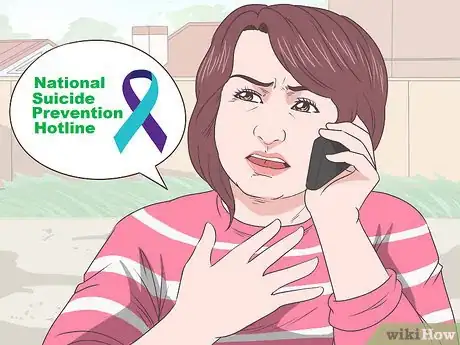
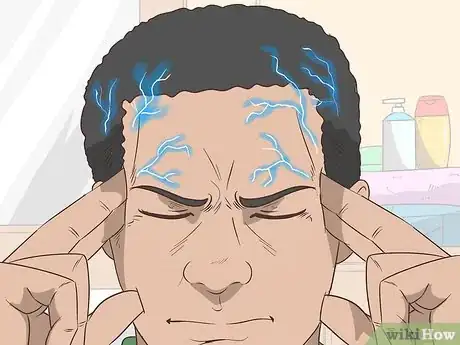
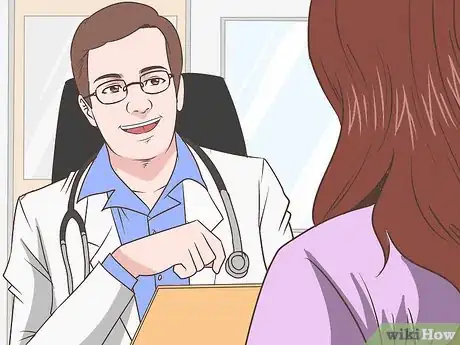

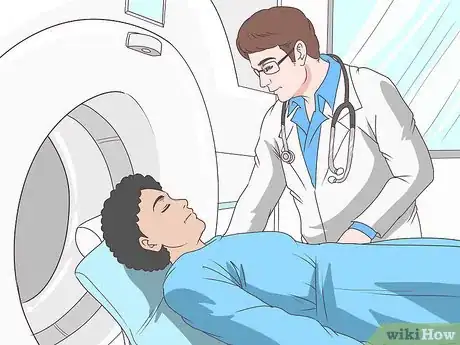
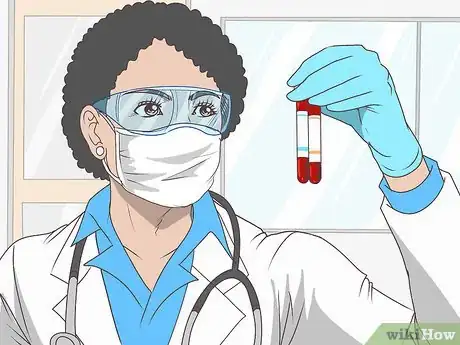
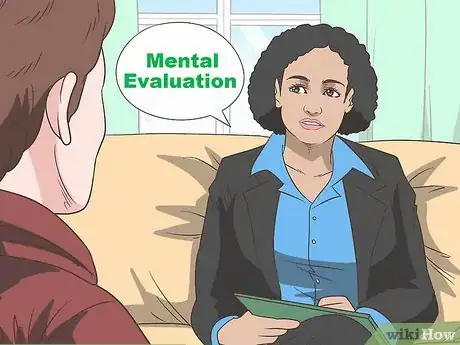

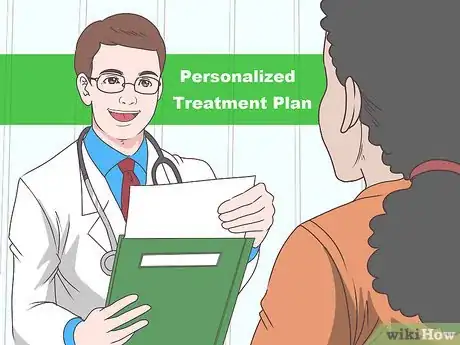
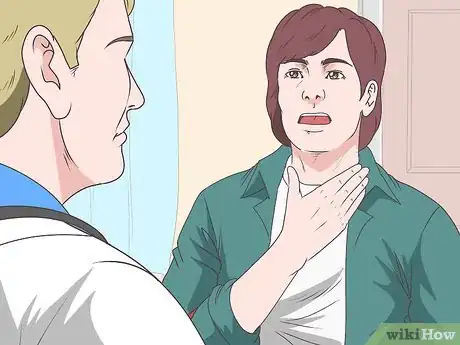
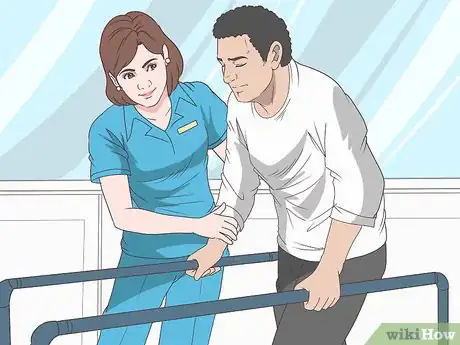


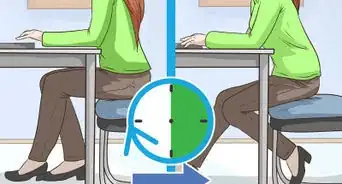

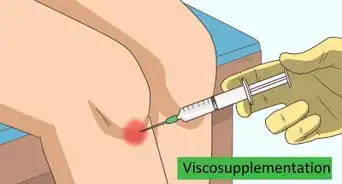
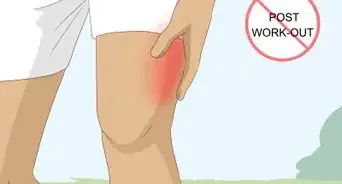

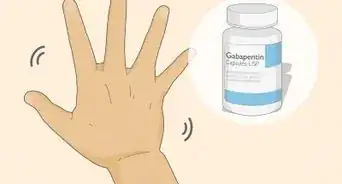


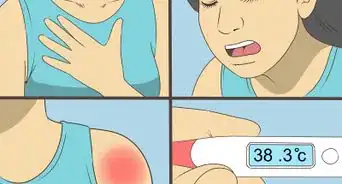

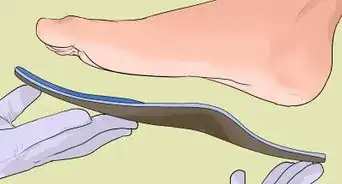
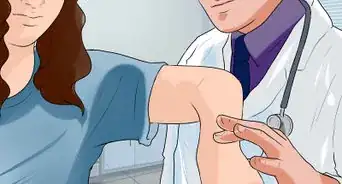
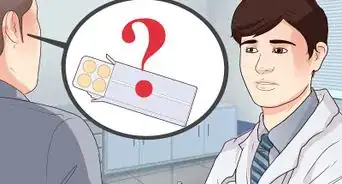
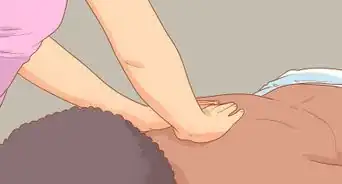







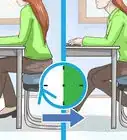

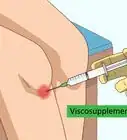
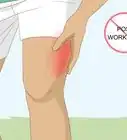



































Medical Disclaimer
The content of this article is not intended to be a substitute for professional medical advice, examination, diagnosis, or treatment. You should always contact your doctor or other qualified healthcare professional before starting, changing, or stopping any kind of health treatment.
Read More...